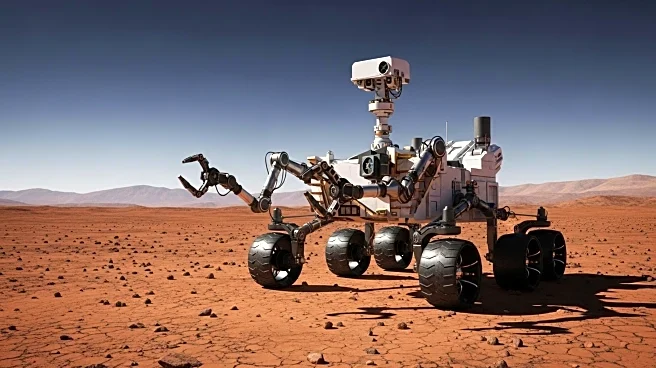What is the story about?
What's Happening?
Christian Hubicki, a robotics expert from Florida State University, has expressed skepticism about Elon Musk's plan to deploy humanoid robots on Mars. According to Hubicki, the current state of humanoid robotics is not reliable enough for autonomous operation on Earth, let alone on Mars. Musk's vision involves using Tesla's Optimus robots to explore Mars and lay the groundwork for human settlement. However, Hubicki points out that humanoid robots are prone to mechanical failures and software crashes, which would be problematic on Mars where human intervention is not possible. Despite Musk's ambitious timeline for deploying these robots by 2026, the expert suggests that without significant advancements in technology, these robots may quickly become inoperative.
Why It's Important?
The success or failure of Musk's robotic ambitions on Mars has broader implications for the future of space exploration and the role of robotics in extraterrestrial environments. If successful, it could pave the way for more advanced robotic missions and potentially accelerate human colonization efforts. However, the current limitations highlight the challenges of relying on humanoid robots for complex tasks in harsh environments. This situation underscores the need for continued research and development in robotics to ensure reliability and functionality in space missions. The outcome of Musk's plans could influence investment and innovation in the robotics industry, impacting future technological advancements.
What's Next?
As Musk continues to push forward with his plans, the focus will likely be on improving the reliability and autonomy of humanoid robots. This may involve collaborations with research institutions and increased investment in robotics technology. Meanwhile, alternative robotic designs, such as those being developed by NASA for other planetary missions, may offer more viable solutions for space exploration. The progress of these initiatives will be closely watched by the scientific community and space enthusiasts, as they could redefine the future of robotic exploration on Mars and beyond.















